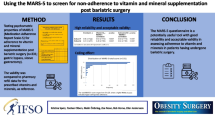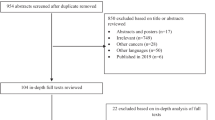Abstract
Introduction
Capecitabine is an oral prodrug of 5–fluorouracil and is commonly used oral chemotherapeutic drugs for advanced gastric and colorectal cancer. However, hand-foot syndrome (HFS) has high incidence, and once developed, the symptoms significantly impair quality of life (QOL), leading to a reduction in the dosage or discontinuation of the treatment. Effective health education should be offered to patients to promote self-identification and management on how to recognize HFS and use self-management techniques at the very beginning of chemotherapy.
Materials and methods
The present study intended to evaluate the effectiveness of structured teaching program on knowledge related to self-identification and management of HFS among patients receiving chemotherapy for colon cancer at tertiary cancer care center. Participants who fulfilled the criteria were selected using non-probability purposive sampling. The sample selected were 40 participants (20 participants in experimental group and 20 participants in control group).
Results
Among the group of 40 patients, 17 (85 %) participants in the experimental group and 17 (85 %) participants in the control group were receiving capecitabine and oxaliplatin (CAPOX) chemotherapy treatment protocol. Five (25 %) participants in the experimental group and ten (50 %) participants in the control group were receiving drug capecitabine at a dose of 2500 mg. The mean knowledge (knowledge related to self-identification and management of HFS) pretest score was 6.75 and mean knowledge posttest score was 10.25 in the experimental group which was statistically significant (p = 0.000) (p < 0.05). The mean knowledge pretest score of participants was 6.45 and mean knowledge posttest score of participants was 6.75 in the control group which was not statistically significant (p = 0.67) (p > 0.05).
Conclusion
The study showed a statistically significant improvement in knowledge scores of participants that occurred due to intervention of structured teaching program. This can be used to assess reduction in incidence of HFS in the future.


Similar content being viewed by others
References
Twelves C, Wong A, Nowacki MP, Abt M, Burris H 3rd, Carrato A et al (2005) Capecitabine as adjuvant treatment for stage III colon cancer. N Engl J Med 352(26):2696–2704
Yamagiwa K, Shigematsu T, Takeda K, Shirai M, Amemori K, Sunda K, et.al (2013) Assessment of hand-foot syndrome in cancer patients treated with capecitabine-containing chemotherapy. [cited 2014 Feb 17]; 40(2):161–3. Available from: http://www.ncbi.nlm.nih.gov/pubmed/24712132
Takeda K, Shigematsu T, Shirai M, Yamagiwa K, Amamori K, Sunda K, et.al (2012) Assessment of hand-foot syndrome in cancer outpatients undergoing chemotherapy. Gan To Kagaku Ryoho [abstract]. [cited 2015 Feb 17]; 39(1):74–6. Available from: http://www.ncbi.nlm.nih.gov/pubmed/23268906
Hoesly JF, Baker SG, Gunawardane ND, Cotliar JA (2011) Capecitabine-induced hand-foot syndrome complicated by pseudomonal superinfection resulting in bacterial sepsis and death: case report and review of the literature. JAMA Dermatol 147(12):1418–1423, cited Feb 17
Saif M (2011) Capecitabine and hand-foot syndrome. Expert Opin Drug Saf [abstract]. [cited 2015, Feb 27]; 10(2):159-169. doi: 10.1517/14740338.2011.546342
Vickers MM, Easaw JC (2008) Palmar plantar hyperpigmentation with capecitabine in adjuvant colon cancer. J Gastrointest Cancer 39(1–4):141–143. doi:10.1007/s12029-009-9068-9
Webster-Gandy JD, How C, Harrold K (2007) Palmar-plantar erythrodysesthesia (PPE): a literature review with commentary on experience in a cancer centre. Eur J Oncol Nurs 11(3):238–246
Son HS, Lee WY, Lee WS, Yun SH, Chun HK (2009) Compliance and effective management of the hand-foot syndrome in colon cancer patients receiving capecitabine as adjuvant chemotherapy. Yonsei Med J [article]. [cited 2015 Feb 17];50(6):796–802. Available from http://www.ncbi.nlm.nih.gov/pubmed/20046420
Sanghi S, Grewal RS, Brig VSM, Vasudevan B, Nagure A (2013) Capecitabine induced hand-foot syndrome: report of two cases. Med J Armed Forces India 69(1):65–67. doi:10.1016/j.mjafi.2012.01.009
Zhao Y, Ding Y, Lu Y, Zhang J, Gu J, Li M (2013) Incidence and self-management of hand-foot syndrome in participants with colorectal cancer. Clin J Oncol Nurs 17(4):434–437. doi:10.1188/13.CJON.434-437
Ramaiah P (2015) A study to assess the effectiveness of structured teaching program on the knowledge of lifestyle modification of hypertension among the patients with hypertension in a selected private hospital at Dharmapuri district. Int J Educ Sci Res (IJESR) 5(1):35–38
Shukla B, Kaur D (2013) A quasi-experimental study to assess the effectiveness of structured teaching programme on knowledge regarding prevention of STDs among women in the selected rural areas, Hoshiarpur, Punjab. Int Res J 3(2):3–10
Samson CPS, Raddi AS, Kharde NS (2009) Effectiveness of a structured teaching program on the knowledge of self-care behavior among HIV infected women attending a selected voluntary organization. South Asian Fed Obstet Gynecol 1(3):85–88
Kaur N, Verma P, Singh SR (2007) Effectiveness of planned preoperative teaching on self-care activities for patients undergoing cardiac surgery. Nurs Midwifery Res J 98(6):131–132
Mathew AD (2011) Structured teaching program for women undergoing abdominal hysterectomy. Nurs J India 102(6):122–123
Author information
Authors and Affiliations
Corresponding author
Ethics declarations
Conflict of interest
The authors declare that they have no conflict of interest.
Rights and permissions
About this article
Cite this article
Murugan, K., Ostwal, V., Carvalho, M.D. et al. Self-identification and management of hand-foot syndrome (HFS): effect of a structured teaching program on patients receiving capecitabine-based chemotherapy for colon cancer. Support Care Cancer 24, 2575–2581 (2016). https://doi.org/10.1007/s00520-015-3061-6
Received:
Accepted:
Published:
Issue Date:
DOI: https://doi.org/10.1007/s00520-015-3061-6




